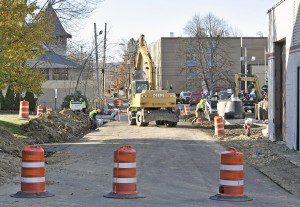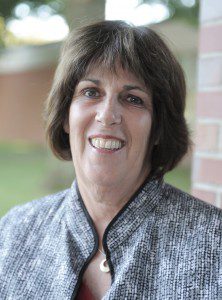WESTFIELD–Ward 4 councilor Mary O’Connell is seeking to make private ways in the city into public ways, opening them up to more funding.
O’Connell brought to the legislative and ordinance committee–which she is a part of–the proposal that would make private ways into public ways. Currently in Westfield, private ways do not get the same maintenance and repairs as public ways do, both due to city regulation and funding.
According to city engineer Mark Cressotti, private ways make up about a third of Westfield’s streets.
“The city is sometimes hesitant to help citizens on private ways,” O’Connell said. “For instance, there was a sinkhole in the backyard of a home on Caitlin Way due to developmental error. The backyard is deteriorating and the city won’t remedy the sinkhole due to it being on a private way.”
Other issues include potholes, curb repair and sidewalk maintenance. Currently, according to city ordinance, temporary repairs are available for private ways but must be approved by a majority vote from the Board of Public Works and, according to Sec. 16-107:
“(1) Such repairs must be limited to grading, surfacing and/or resurfacing and may include installation or repair of drainage.
(2) Such repairs are required by public necessity.
(3) If such way has been opened to public use for a period of 50 years or more.
(4) A petition signed by at least 51 percent of the abutters of such way is presented to the board of public works requesting such repairs.
(5) Betterment charges shall not be assessed to said abutters.
(6) The city shall not be liable for any damages caused by such repairs.
(Ord. No. 879, § 15-68, 10-20-83)
O’Connell said that although a majority of the private ways don’t create issues, there are some that do and in order to properly address them this ordinance would be necessary.
Through the ordinance, both O’Connell and ward 6 councilor and legislative and ordinance member Bill Onyski suggested that it would open the streets and city to a potential of more money from MassDOT’s Chapter 90 funding. This funding allows for cities to apply for reimbursable funds through approved roadway projects.
Onyski voiced the concern that the plan would have issues if it goes through as it is proposed, so he suggested that this be planned thoroughly.
“Looking at the process as it is now it is way too complicated and has way too much of a chance of getting caught up,” he said. “If we can find a way to do this en masse that’s the way to do this.”
Legislative and ordinance chairperson and ward 2 councilor Ralph Figy suggested that the plan’s discussion be moved forward until the committee’s next meeting Jan. 12, and that the committee get several members of the municipal government to give advice on the plan, including the city assessor, department of public works and the city engineering department.



